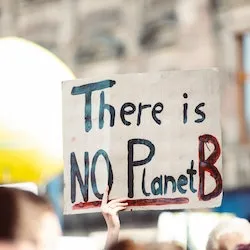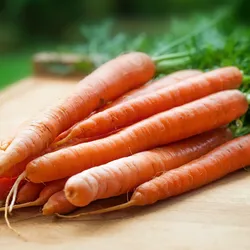
Level 1:
Climate change is when the weather changes over a long time. This happens because people burn things that make the air dirty. The world gets hotter and hotter. This can hurt us. It can make it hard to breathe or make us sick. Climate change also hurts animals and plants. They have to move to new places to find what they need. The sea gets warmer too. This can hurt the fish and plants that live there. Rain comes more often and harder. This can cause floods and landslides. We need to be careful and help stop climate change.
Level 2:
Climate change is a long-term shift in weather patterns caused by human activities like burning fossil fuels, which release greenhouse gases into the atmosphere. The Earth’s temperature rises as a result of this, and it can have negative effects on our health. It can lead to respiratory problems and illness. Climate change also has harmful consequences for animals and plants, as they need to adapt to new conditions or risk extinction. Additionally, the warming of the oceans causes coral bleaching events, devastating coral reefs and the marine life that relies on them. Increased rainfall and flooding also occur, which can cause landslides and damage to our homes and communities. We must take action to reduce our carbon footprint and stop climate change from worsening.
Full Story:
Climate change is a topic that has been on the forefront of global discussions for decades. It refers to the long-term changes in weather patterns and temperatures around the world, which are largely caused by human activities such as burning fossil fuels and deforestation. These activities release greenhouse gases into the atmosphere, trapping heat and causing the Earth’s temperature to rise.
As the Earth’s temperature continues to rise, it affects us, the environment, animals, the ocean, and the water cycle in numerous ways. In this article, we will explore how each of these areas is impacted by climate change.
Firstly, let’s take a look at how climate change affects us. Rising temperatures can cause more frequent and severe heatwaves, which can have numerous health impacts such as dehydration, heat exhaustion, heat stroke, and even death in extreme cases. Climate change also increases the likelihood of natural disasters such as floods, wildfires, and hurricanes, which can result in property damage, displacement, and loss of life.
Moving on to the environment, climate change has a significant impact on ecosystems and biodiversity. As temperatures rise, many plant and animal species are forced to adapt to new conditions or risk extinction. This can lead to imbalances in ecosystems, affecting the food chain and disrupting the natural balance of nature.
Climate change also has severe consequences for animals. As habitats change and become inhospitable, animals are forced to migrate or face extinction. For example, polar bears rely on sea ice to hunt and raise their young, but with the rapid melting of Arctic sea ice due to climate change, their survival is threatened. Additionally, global warming has led to coral bleaching events, which have devastated coral reefs and the marine life that depend on them.
Speaking of the ocean, climate change has a profound effect on this vast body of water. The ocean absorbs much of the excess heat and carbon dioxide from the atmosphere, resulting in warmer and more acidic waters. This has a devastating impact on marine life, as many organisms are sensitive to changes in temperature and acidity. The ocean also plays a crucial role in regulating the Earth’s climate, so any changes to it can have far-reaching consequences.
Finally, let’s consider how climate change affects the water cycle. As temperatures rise, evaporation rates increase, leading to more frequent and intense rainfall events. This can result in flooding and soil erosion, which can have severe impacts on agriculture, infrastructure, and human settlements. At the same time, increased temperatures can cause droughts, which have significant implications for crop yields, water supplies, and natural ecosystems.
Climate change is a complex issue that affects many aspects of our lives, from our health and safety to the environment and the planet at large. The impacts of climate change are far-reaching and interconnected, meaning that addressing this issue requires a comprehensive approach that considers all areas of impact. By working together to reduce greenhouse gas emissions, protect vulnerable ecosystems, and promote sustainable practices, we can help mitigate the effects of climate change and ensure a brighter future for ourselves, the environment, and all living beings.
Questions:
What is climate change and how does it affect the environment?
What are some of the negative effects of climate change on human health?
In your opinion, what actions can individuals take to help combat climate change?
How is marine life affected by climate change?
Do you believe enough is being done to address the issue of climate change?
Fill in the Blanks:
ecosystems, heatwaves, agriculture, displacement, biodiversity, mitigate, acidity, regulating, severe, extinction, infrastructure, adapt, flooding, dehydration, imbalances
Rising temperatures can cause more frequent and ________ ________, which can have numerous health impacts such as ________, heat exhaustion, heat stroke, and even death in extreme cases.
Climate change also increases the likelihood of natural disasters such as floods, wildfires, and hurricanes, which can result in property damage, ________, and loss of life.
Moving on to the environment, climate change has a significant impact on ________ and ________.
As temperatures rise, many plant and animal species are forced to ________ to new conditions or risk ________.
This can lead to ________ in ecosystems, affecting the food chain and disrupting the natural balance of nature.
This has a devastating impact on marine life, as many organisms are sensitive to changes in temperature and ________.
The ocean also plays a crucial role in ________ the Earth’s climate, so any changes to it can have far-reaching consequences.
This can result in ________ and soil erosion, which can have severe impacts on ________, ________, and human settlements.
By working together to reduce greenhouse gas emissions, protect vulnerable ecosystems, and promote sustainable practices, we can help ________ the effects of climate change and ensure a brighter future for ourselves, the environment, and all living beings.
Vocabulary:
Climate change - the long-term changes in weather patterns and temperatures around the world caused by human activities such as burning fossil fuels and deforestation, resulting in the release of greenhouse gases into the atmosphere which trap heat and cause the Earth’s temperature to rise.
Severe - very intense or extreme
Heatwaves - a prolonged period of excessively hot weather, which may be accompanied by high humidity and can cause health problems
Dehydration - a condition that occurs when the body loses more fluids than it takes in, leading to a lack of water in the body
Heat exhaustion - a condition that occurs when the body overheats due to exposure to high temperatures and/or excessive physical activity, causing symptoms such as fatigue, weakness, dizziness, and nausea
Heat stroke - a severe form of heat exhaustion that can be life-threatening, characterized by symptoms such as high body temperature, confusion, seizures, and loss of consciousness
Property damage - damage to buildings, homes, or other structures caused by natural disasters or other events
Displacement - the forced movement of people from their homes or communities due to conflict, natural disasters, or other factors
Extinction - the complete disappearance of a species from the Earth
Adapt - to adjust or change in response to new or changing conditions
Ecosystems - a community of living and non-living things interacting with each other in a specific environment
Biodiversity - the variety of different species of plants, animals, and microorganisms that exist in an ecosystem
Imbalances - lack of equilibrium or balance; when one thing is more than another
Food chain - a series of organisms (plants and animals) through which food energy is passed within an ecosystem
Polar bears - a large bear found in the Arctic region, primarily on ice floes
Sea ice - frozen seawater that forms and melts annually in polar regions
Coral bleaching - a phenomenon where coral loses its vibrant color due to stress, such as increased water temperatures, which can lead to the death of the coral
Marine life - all living organisms that exist in the ocean, including fish, shellfish, mammals, and plants
Acidity - the level of acid in a solution, measured on a scale of 0-14, with 7 being neutral, below 7 being acidic, and above 7 being basic/alkaline
Regulating - controlling or maintaining something within certain limits
Evaporation rates - the speed at which liquid turns into vapor due to heat
Rainfall events - periods of rainfall, often described in terms of intensity and duration
Flooding - the inundation of land that is normally dry due to heavy rain, melting snow, or other factors
Soil erosion - the process by which soil is moved from one place to another by wind, water, or other forces, often resulting in the loss of topsoil and damage to vegetation
Agriculture - the practice of cultivating crops and raising animals for food, fiber, fuel, and other products
Infrastructure - the physical structures and systems that support modern society, including roads, bridges, buildings, power grids, and communication networks
Mitigate - to reduce or lessen the impact or severity of something




